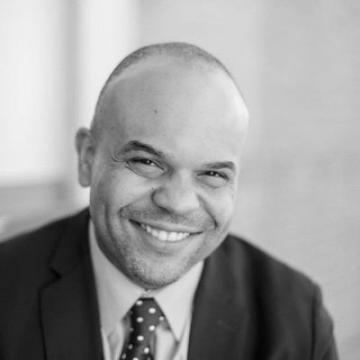Woodrow Wilson: Impact and Legacy
Woodrow Wilson left the White House broken physically but serenely confident that his vision of America playing a central role in a league of nations would be realized eventually. While it can be argued that his stubbornness or his physical collapse prevented his realizing the dream that was within his grasp in 1919, there can be no doubt that his ideal inspired many Americans and that it shaped much of American foreign policy for the remainder of the twentieth century.
Despite the tragedy of his last year in office, Wilson left an enduring legacy. His transformation of the basic objective of American foreign policy from isolation to internationalism, his success in making the Democratic Party a “party of reform,” and his ability to shape and mobilize public opinion fashioned the modern presidency. Under his leadership, Congress enacted the most cohesive, complete, and elaborate program of federal oversight of the nation's economy up to that time: banking reform under the auspices of the Federal Reserve System, tariff reduction, federal regulation of business, support for labor and collective bargaining, and federal aid to education and agriculture.
Together, these programs helped the United States begin to catch up with what was happening in other industrial states around the world. They reflected a deep commitment to the humanization of the industrial system and laid the basis for the modern welfare state. His wartime mobilization program became a model for the New Deal’s fight against the Great Depression in the 1930s and for Franklin Roosevelt’s mobilization policies during World War II. He was the first statesman of world stature to speak out not only against European imperialism but against the newer form of economic domination sometimes described as “informal imperialism.” For repressed ethnic and national groups around the world, his call for “national self-determination” was the herald's trumpet for a new era.
Domestically, he was perhaps the most important transitional figure among the presidents since Lincoln. Theodore Roosevelt, while redefining the modern president as a steward of the common good of the nation, continued the progressive tradition long associated with the party of Lincoln. Wilson took a party mired in Southern conservatism and big-city machine politics that had resisted William Jennings Bryan’s reform proposals and made its basic agenda progressive. With his presidency, the Democratic Party assumed the mantle of reform while Republicans became more conservative.
On the negative side, Wilson’s idealism sometimes led him astray. If his commitment to self-determination led him to set the Philippines on the road to independence, his desire to promote the benefits of democracy in Latin America produced the invasion and military occupation of Haiti and the Dominican Republic. And if he generally avoided those mistakes in Mexico, it is hard not to suspect that major reasons for his restraint were the practical problems associated with imposing America’s will upon a nation of such size. He tolerated no dissent during the war and authorized serious violations of Americans' civil liberties in his quest for victory. Nor did his zest for humanitarian justice extend to African Americans: He supported segregation in government departments and did little to stop the waves of antiblack violence and race riots that swept over the land during his administration, particularly in the years after the war.
During the period of neutrality prior to American entrance into World War I, Wilson could have avoided conflict with Germany by restricting Americans' travel into the war zone, but his stubborn insistence that German submarines must respect the lives and property of neutrals upheld the ideals of international law while ignoring the reality that technology had transformed warfare. Moreover, his principled rejection of using the threat of an arms embargo to blackmail the British into modifying their restrictions on American trade frustrated and infuriated Germany, thus increasing the risk of war with the United States. In these cases, idealism carried a substantial cost.
Critics claim that Wilson went to war at least partly to resist the spread of Communism and to hasten US economic penetration of world markets. Although Wilson described the postwar treatment of Russia, in his Fourteen Points speech, as the “acid test” of the peace treaty, he agreed to exclude the Russians from the peace conference. Some critics see that decision as evidence of his hostility to Communism and his aggressive desire to overthrow the Bolshevik government in order to make the world safe for American capitalism. For such historians, Wilson's action, when seen in the context of the Palmer Raids and his heavy-handed treatment of socialists at home, was a principal cause of the Cold War.
When legacy is defined as influence on the nation and future politics, Wilson ranks behind only Washington, Lincoln, Franklin Roosevelt, and Jefferson in importance. Richard Nixon recognized the power of Wilson's legacy when he returned Wilson's desk to the Oval Office in 1969. Nixon saw himself as the president who would establish a new, Wilsonian world order of stability and collective security to replace the Cold War confrontations of the 1950s and 1960s.
That vision, of a world made safe and prosperous by the collective action of all nations, explains the enduring power of what former secretary of defense and head of the World Bank Robert McNamara called “Wilson's ghost.” The spread of freedom and democracy, most Americans believe, would benefit everyone, and at the same time, a free, democratic world would be one in which the United States would be secure and American goods and services would be welcomed everywhere. The question of whether collective international action, such as Wilson advocated, or unilateral American policy will be most conducive to the creation of the sort of world Americans want (or the rest of the world for that matter) is the basic foreign policy issue of the early twenty-first century, as it was one hundred years ago.
